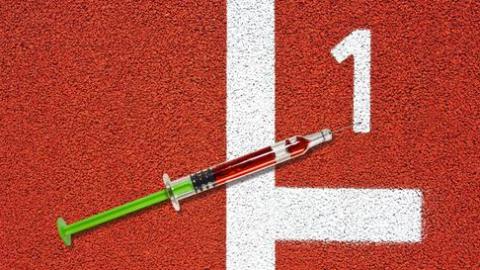Why We Need a Separate Pro-Doping Olympics

What’s the Latest Development?
British sprinter Dwain Chambers is returning to the Olympics this summer after a 2003 suspension for doping. Having been given a second chance, Chambers is now a public advocate against steroid use. But the campaign against performance enhancing drugs is an uphill battle for numerous reasons. “‘There’s an arms-race quality to performance-enhancing technologies in sport,’ says Thomas Murray, former president of the Hastings Center, a bioethics and public-policy foundation in Garrison, New York.” While science is ill-equipped to answer moral dilemmas, it can tell us how much drugs enhance our body’s performance.
What’s the Big Idea?
Because taking testosterone triggers protein synthesis in the body and builds more muscle tissue, scientists estimate that a regimen of steroids could help male athletes improve their performance by 38%, potentially more in women. Some athletes have had naturally-occurring genetic mutations which confer athletic advantages, such as more red blood cells that help to carry more oxygen to the body’s muscles. Surgery and technical augmentations also help to push the body’s physical limits, which seems part of the Olympic’s purpose. For that reason, performance enhancing drugs may demand an Olympics all their own, with new competitions like power running, power swimming and power climbing.
Photo credit: Shutterstock.com




